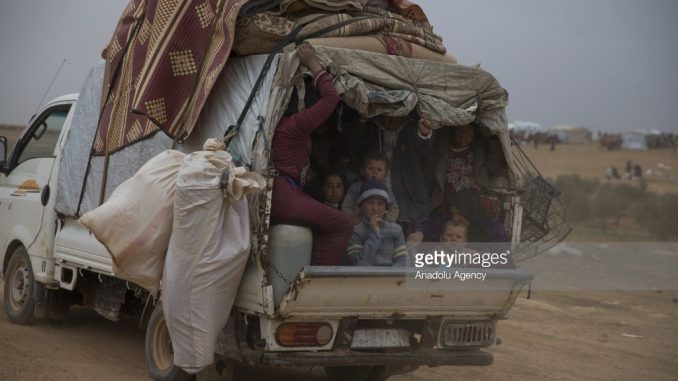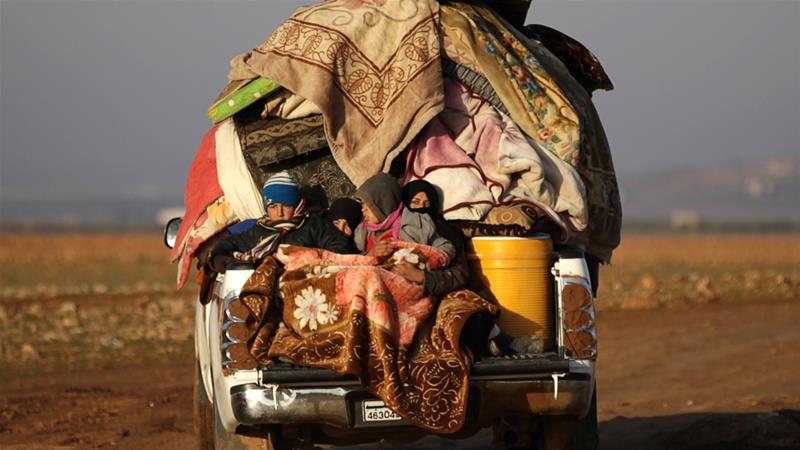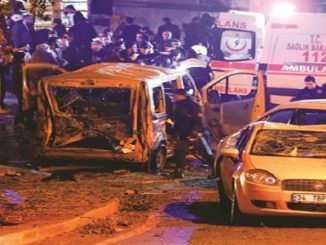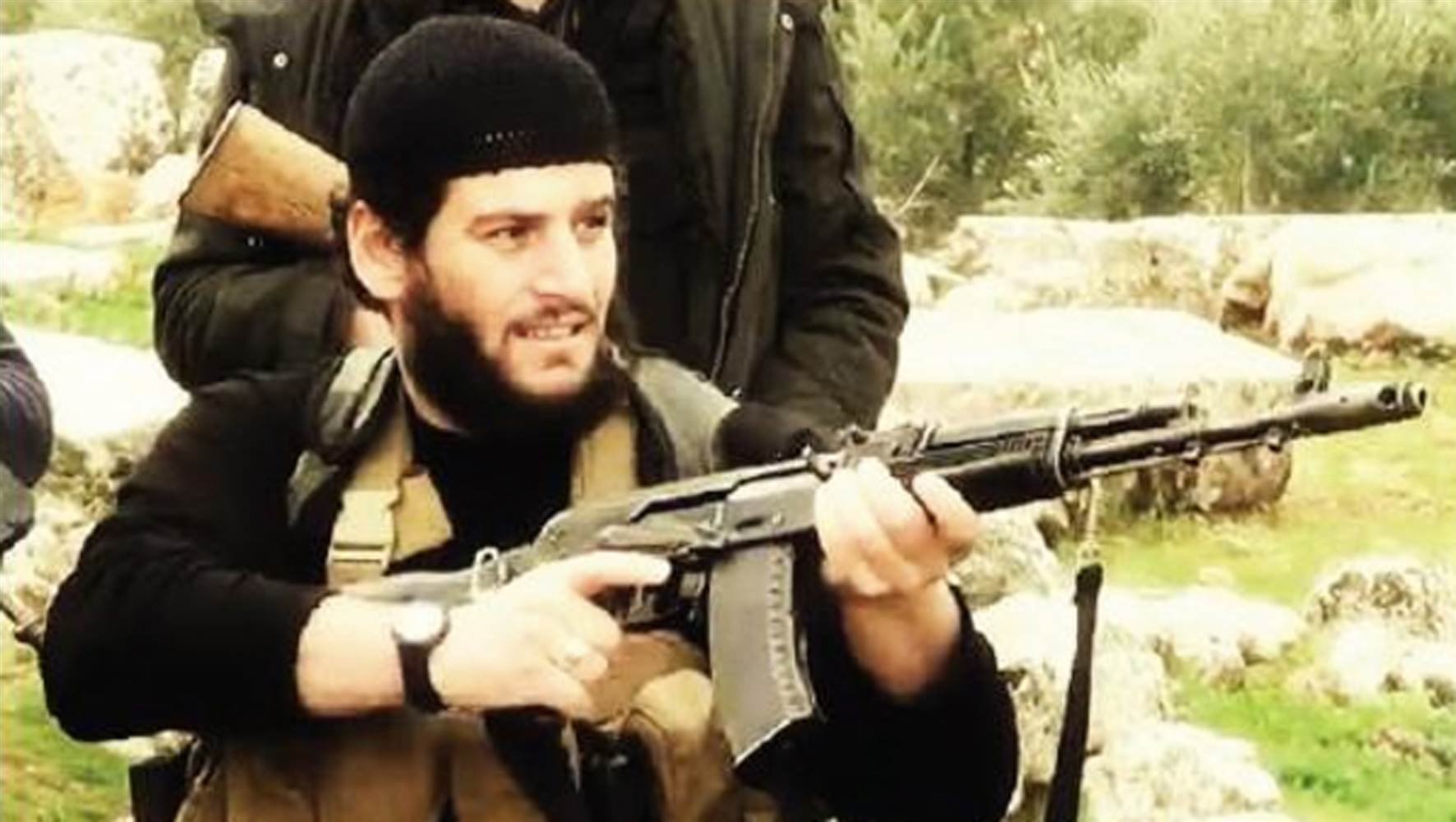
More than 65,000 people have been forced to flee their homes in northern Syria in the past few weeks, the United Nations said, as various groups launched fierce campaigns to end Islamic state’s influence there.
The UN’s humanitarian agency, OCHA, said that tens of thousands of people have left their homes in northern Aleppo province due to the heavy military operation by both the regime and Turkish-backed Syrian rebels, particularly around the former ISIS stronghold of Al-Bab.
Al-Bab is 40km northeast of Aleppo, where the regime defeated rebels in December – its most important gain in the nearly six-year-old war.
The Turkish forces reached the outskirts of al-Bab city on 13 November 2016. The first battle against ISIS was on 21 December 2016 when it prevented Euphrates Shield factions from entering the city, what made the Turkish forces begin a new military operation on 7 February that led to recapturing most of the town on February 23.
ISIS forces retreated from al-Bab after their defeat and tried to keep their hold on the surrounding areas, but they were met with fierce attacks by both the rebels and regime forces. The two sides aim at strengthening their positions around Aleppo.
Last Sunday, the Assad regime forces took the town of Tadef after Islamic State withdrew from it, state television reported. Tadef is located just one kilometer south of Al-Bab.
The eastwards advance south of Tadef has extended Syrian army control across 14 villages and brought it within 25km (15 miles) of Lake Assad, the stretch of the Euphrates above the Tabqa dam.
Escaping violence around al-Bab
“This includes nearly 40,000 people from Al-Bab city and nearby Tadef town, as well as 26,000 people from communities to the east of Al-Bab” in northern Aleppo Province, OCHA said.
Since February 25, OCHA said, another 26,000 people fled violence further east, where Syrian government forces supported by Russian air power have also been waging a fierce offensive against ISIS.
It added that the “high contamination” of unexploded bombs and booby traps set by retreating ISIS fighters was complicating efforts to return.
More than 61 civilians were killed and dozens of others injured on February 24. when ISIS targeted civilians fleeing al0Bab with two suicide bombings.
The Syrian Observatory for Human Rights monitoring group had said 30,000 people had been displaced by fighting between government forces and ISIS.
A journalist, reporting from Gaziantep on the Turkey-Syria border, said there was a “growing humanitarian crisis”.
“The civilians we talked to mentioned some horrific details, including their money being stolen and also children being slaughtered by ISIL,” she said.
“There’s also the issue of return: when and if. ISIL have planted many mines in the neighborhood and that will become a big issue if and when they are allowed to return home,” she added.
Fleeing with nothing
Many of those fleeing the violence sought refuge in areas around Manbij, a town controlled by the US-backed Syrian Democratic Forces (SDF).
An AFP news agency correspondent in Manbij said that long queues of families were still forming at checkpoints leading to the town on Sunday.
Pick-up trucks full of children and women wearing full black veils were being searched individually by SDF personnel before being allowed to enter.
Aleppo province hosts tens of thousands of displaced Syrians, many in camps near the Turkish border.
“We left our homes with nothing: no fuel, no bread. Our children are starving,” said Jumana, a 25-year old Syrian woman who fled the clashes with her two children.
“Daesh [ISIL] was shelling us, the airplanes were hitting us. Our children were terrified. We were barely able to save ourselves,” she said on the outskirts of a village around 18km from Manbij.
Ibrahim al-Quftan, co-chair of Manbij’s civil administration, told AFP on Saturday that fleeing families were “suffering very difficult circumstances.”
“The numbers of displaced people here are still rising because of the clashes between the Syrian regime and Daesh (IS),” Quftan said.
The Syrian crisis began as a peaceful demonstration against the injustice in Syria. Assad regime used to fire power and violence against the civilians and led to armed resistance. 450.000 Syrians lost their lives in the past five years according to UN estimates, and more than 12 million have lost their homes.




